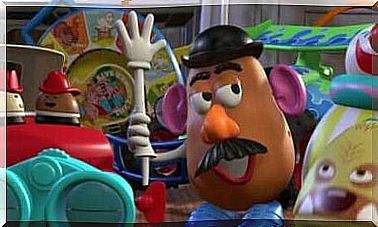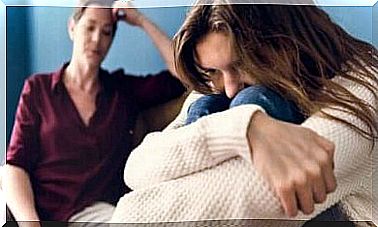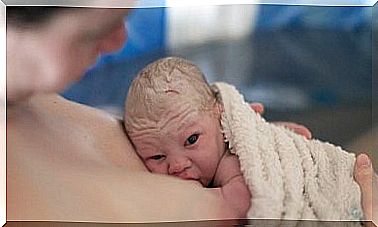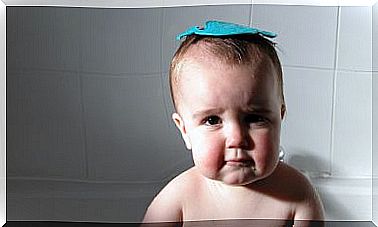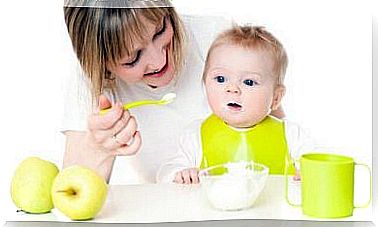11 Phrases To Tell Your Kids When They Cry
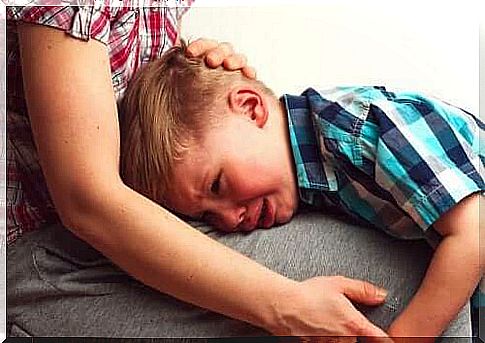
It’s no secret that listening to our children’s crying makes us uncomfortable. Just think how anxious it makes you to see your children cry for no apparent reason. Even though we know that babies communicate by crying, we still think we need to fix that, as if crying is actually wrong. That’s why we give you some phrases to tell your kids when they cry.
Once babies start to walk and talk, we expect them to communicate as we do, rather than as they normally do: through crying.
Certain studies have even shown that our brains are programmed to respond immediately when we hear children cry. This makes us more attentive and ready to help them and act quickly.
Actually, a crying baby puts us on edge to fight or run. It also raises our heart rate and makes us act even if the child is not ours. It seems like we have to respond to a crying baby. But how?
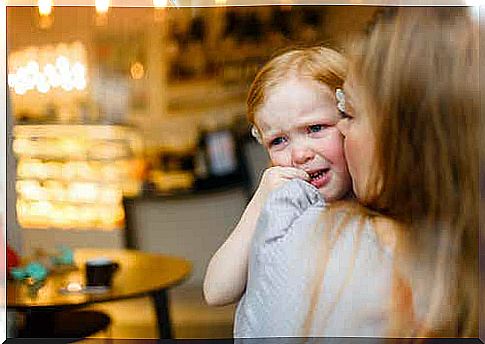
A crying baby is not always sad: phrases to tell your children
Many children cry not only when they are sad, but also to express any emotion they feel. They may cry with anger, frustration, fear, emotion, confusion, concern, or even happiness.
In addition, in some cases children are not yet able to talk or understand their own emotions. This means that if we ask them what is going on, we will hardly come up with a reasonable answer.
When you say, “Don’t cry!” does this make life more difficult
Even though you may think ending their tears will save you and your children from suffering, if you say, “Don’t cry!” then they think you don’t understand how they feel. As a result, your message may become stronger and more persistent.
If you ask them to stop crying, you are telling them that their emotions are not valid or important. Whatever you really think about that particular situation, your inability to acknowledge their feelings makes you lose an opportunity to learn from that emotion and process it in a positive way.
As difficult as it sounds, our goal as parents is to help our children regulate their emotions. And we can only do this by treating them with empathy and understanding.
Don’t distract your kids when they cry
Parents usually want to distract their children when they cry. We think that if we manage to get them to stop crying, the problem will go away. However, distraction makes you lose the opportunity to connect with them and teach them to process their emotions.
What should you say instead? Eleven phrases to tell your children when they cry
The next time you see kids crying, try taking a moment to make sure they’re okay. When they’re angry, stressed, or frustrated, the things you say can make them feel the worst.
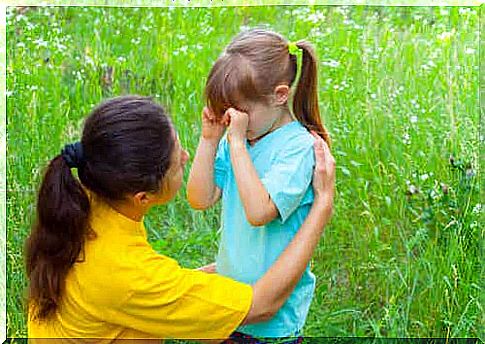
Take a few breaths, identify their feelings, focus on what’s happening in their bodies (their heart may speed up, they may grit their teeth or feel very tense). And when you have done this, tell your children the following sentences:
- “We’re on the same team, I’ll help you get better.”
- “I can see this is difficult for you.”
- “I understand that you are sad (disappointed, scared, anxious, happy…) and that’s okay”.
- “We’ve all felt that way, it’s completely normal.”
- “Let’s take a break”.
- “This was really sad, frustrating or disappointing, wasn’t it?”
- “I love you, you are with me, you will be fine”.
- “Do you need help trying again?”
- “Do you need to rest to try again later?”
- I see you’re crying, but I don’t know what you need. Can you help me understand?”
- “Let’s find a solution together”.
Give your child space when he or she cries
In addition, remember to stay calm and give your kids some space while they cry, if that’s what they need. Be empathetic and strong so they know you’re there when they need you.
Ultimately, all parents want to help their children develop problem-solving skills. Finding a solution that would help them process their emotions will teach them to see things more objectively and find a solution to their problems.
